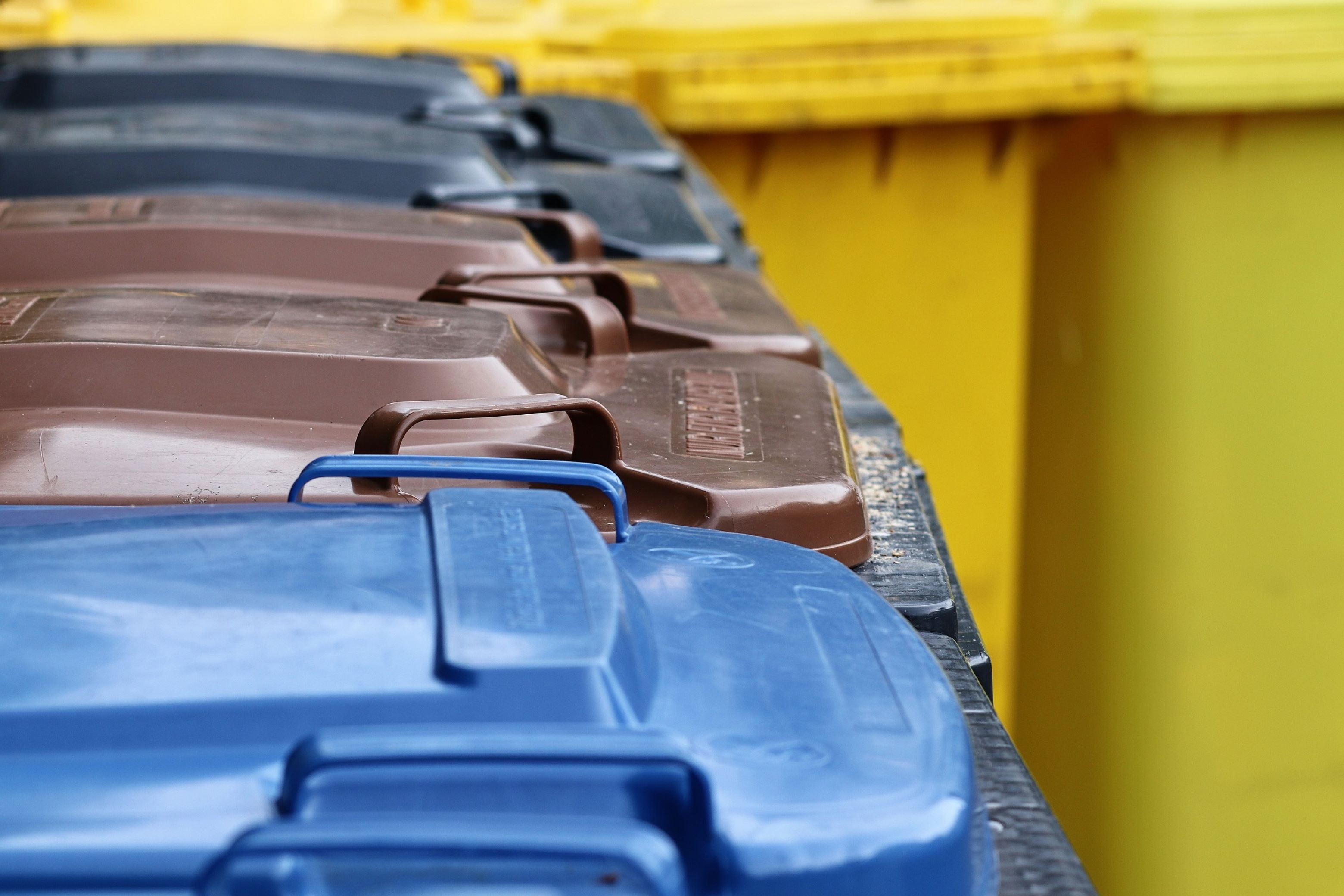New research project: Fast and automated characterization of household waste directly at the consumer's premises
Household and municipal waste represent a particular challenge for recycling, as they contain a widely varying material mix. This ranges from kitchen waste, plastic packaging and paper to glass and textiles. In order to facilitate pre-sorting, many countries there-fore rely on selective collection systems. However, this approach also has disadvantages: For example, it is not always clear to the consumer which waste material belongs in which collection container and the resulting mistakes make subsequent automated sorting and ultimately high-quality recycling of the materials contained more difficult.
Together with the environmental consulting company envitec-k, the Fraunhofer Research Institution for Materials Recycling and Resource Strategies IWKS has therefore starting a project to develop a new type of collection system. The Automatic Waste Collecting & Pre-Sorting System (AWCPSS) aims to classify and sort waste directly in residential areas. The system analyses the contents of a discarded waste bag and reports the result directly to the user. This means that incorrect throws or excessive contamination with other waste groups or impurities can be efficiently corrected on site. The system communicates with the consumer via an app, which enables intuitive and convenient use. The system can also be used for subsequent presorting in different fractions.
Within the project a first prototype of the AWCPSS will be developed. The researchers of Fraunhofer IWKS are investigating different possibilities of rapid characterization of four different household waste groups. In particular, wet waste (kitchen waste) and dry waste (recyclable waste material) will be investigated in the first step. Later, the other waste groups will be analysed.
"Such a comprehensive pre-sorting system directly after waste disposal does not yet exist. To create a demonstrator, we first define various requirements such as the possible composition of the waste, the shape of the waste bag and the definition of tolerance limits and impurities," explains Dr. Sven Grieger, coordinator of the project at Fraunhofer IWKS. To this end, the scientists are developing suitable sensor-based detection methods. The results will then be suitably combined and used to develop the demonstrator.
There is a great demand for intelligent collection and sorting systems. "Emerging industrial nations such as China are particularly keen to improve their waste recycling and recycling rates. Sorting household waste is very costly. The advantage of the AWCPSS is that it starts directly at the beginning of the process chain. This produces a higher quality of the fractions, which in turn ensures better sorting and thus leads to considerable cost savings in the long term," adds Tamim Kazem, Managing Director of envitec-k UG.
The system creates a classic win-win situation for both consumers and waste disposal companies: sorting and collection becomes more convenient and the time-consuming manual re-sorting currently required is no longer necessary, which reduces the costs of disposing of household waste. Last but not least, this will help to further reduce the environmental impact of household waste by increasing the share of material recycling, including the treatment of biowaste.
"There are still many possibilities to expand the system. In the future, for example, a bonus program or direct cost reimbursement could also create incentives for consumers to produce less waste and dispose of it in cleaner fractions," says Tamim Kazem.
The first phase of the project is to be completed after four months, further steps are already being planned. Subsequently, investigations will be carried out to characterize the other groups of household waste, including the identification of specific impurities and hazardous substances (e.g. old medicines, batteries).
Further research is required in particular in the area of the development of adapted analytics with high collection reliability and their combination to cost efficient sorting systems for this field of application.
It is expected that the introduction of the Automatic Waste Collecting & Pre-Sorting System (AWCPSS) in the first residential units in Shanghai will be a showcase for the distribution in the region and will have a positive impact on other markets and regions.

